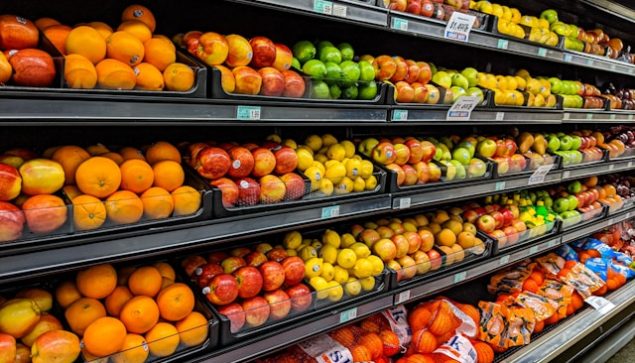Earlier this month, world leaders got together for what many believed to be the world’s last chance to limit global warming to well below 2 degrees and aim for 1.5 degrees. Given that emissions from food production make up more than a third of global carbon emissions, transforming the food system is an urgent priority. According to Paul Taylor, executive director of FoodShare, the climate crisis is already impacting food access, as extreme and unpredictable weather events have increased world food prices by 31 per cent in the past year. Climate change is especially hitting food security of Indigenous Peoples in Canada hard. While their contribution to greenhouse emissions is among the lowest in the country, they are on the frontlines of climate change impacts. In an already inequitable food system, the climate crisis exacerbates food insecurity.
Yet, food systems were not as prominently discussed at COP26 as we would have hoped for. Agriculture was discussed in ‘Nature’ day’ and a pledge titled ‘Sustainable Agriculture Policy Action Agenda for the Transition to Sustainable Agriculture and Global Action Agenda for Innovation in Agriculture’ (Policy Action Agenda, in short), was endorsed by 45 countries.
However, innovative technological solutions, which the Policy Action Agenda focuses on, are only a small part of the solution. The climate crisis requires an immediate system-wide transformation of food systems before it’s too late. World leaders should have been pushing for and adopting plans to shift to people-centred, just, equitable, healthy, climate-resilient, and sustainable food systems that safeguard biodiversity. A people-centred food system includes immediate action to stop land destruction and end labour exploitation in Canada and abroad in the name of profit. Instead, subsidies should be redirected to support local, small-scale food producers, the diversification of protein supplies, and agro-biodiverse agricultural systems that protect nature. A Declaration from the Global People’s Summit, says:
“Indigenous and genuinely sustainable local initiatives to produce food must be supported instead of the destructive and unsustainable agro-industrial food production. Recognition of Indigenous Peoples’ self-determination over their ancestral land and diversified food system is critical to promote just and equitable food systems.”
Cities and other sub-national and regional governments also showed leadership with the Glasgow Food and Climate Declaration, initiated by Nourish Scotland and IPES-Food. With Vancouver signing on from Canada, the Declaration speaks up for:
“a unified voice in renewing their commitments to develop sustainable food policies, promote mechanisms for joined-up action and call on national governments to put food and farming at the heart of the global response to the climate emergency.”
Nourish Scotland’s Recipes for Resilience programmed 12 days of events on the fringes of COP26 about food and climate, and you can read Food Tank’s reports from the hub here, including how food policy can be a linchpin for change in tackling the poverty, biodiversity and climate crises.
The Food Policy for Canada, introduced in 2019, promised alignment with the UN Sustainable Development goals, such as: SDG 2 (Zero Hunger), SDG 3 (Good Health and Well-Being), SDG 12 (Responsible Production and Consumption), and SDG 13 (Climate Action). As it stands, Canada is not on track to meet any of the SDG targets that were explicitly mentioned in the Food Policy for Canada.
The food sector is at the heart of the global response to climate change. We know which direction our food system needs to go for us to have a shot at fighting climate change and allow everyone the right to food. What we need now is for our politicians to put the people and planet’s interests first and act.
Other analysis of COP26 from the food movement:

